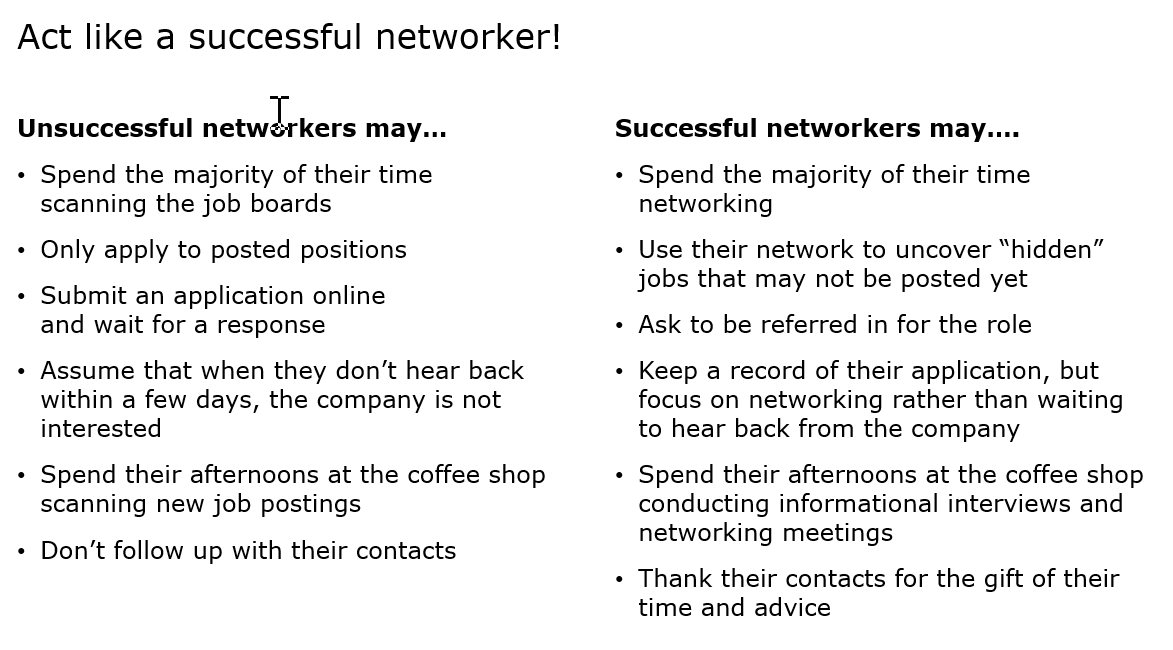What is Networking?
At its core, networking is about creating relationships that are mutually beneficial.
Simply put, networking is talking to people – something we do every day.
But with networking, it helps to have an agenda in mind, so you can maximize your conversational
efforts and walk away with information you did not have before.

< Back
Don’t ask for a job. Learn as much as you can about your
target job, industry and organization and leverage this information as you
uncover and pursue opportunities.
Be courteous of your network’s time. Get the information
and get out. Do not make unnecessary repeated calls to check in. Only make
contact for a genuine purpose.
Don’t play games within the network. Make solid decisions
quickly and then move on. Your network will not find a job for you – that is
your job. Your network provides an avenue to uncover opportunities that you
can pursue.
Other Resources
If you’d like to learn more about networking, check out the following
books:
Brag! The Art of Tooting your Own Horn without Blowing it!
People Power:12 Power Principles to Enrich Your Business
Career and Personal Networks
Never Eat Alone (Keith
Ferrazzi)
This site is intended for use only by individuals eligible to receive Transition Assistance from Deloitte. If you have questions regarding eligibility, please contact CoRe Contact Center at +1 800 DELOITTE (+1 800 335 6488) and select the option for “Talent.”Cookies
